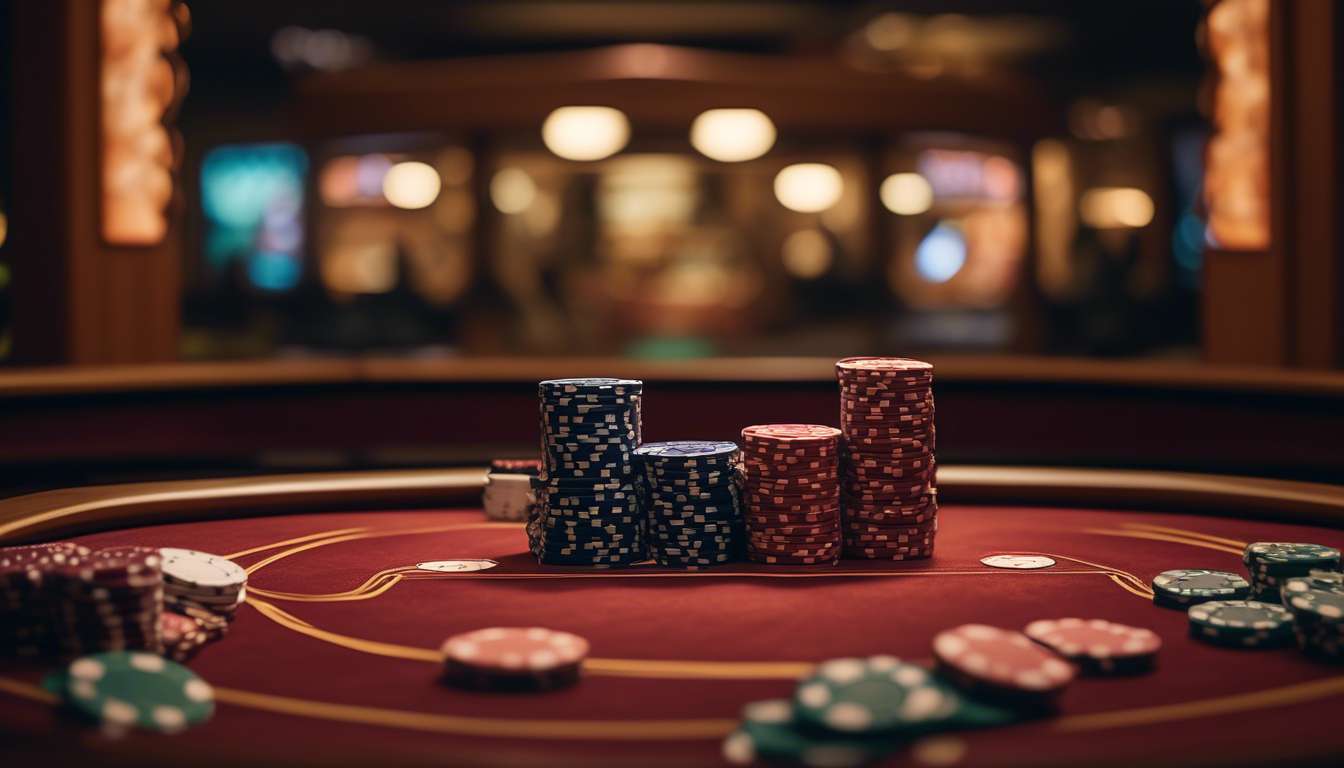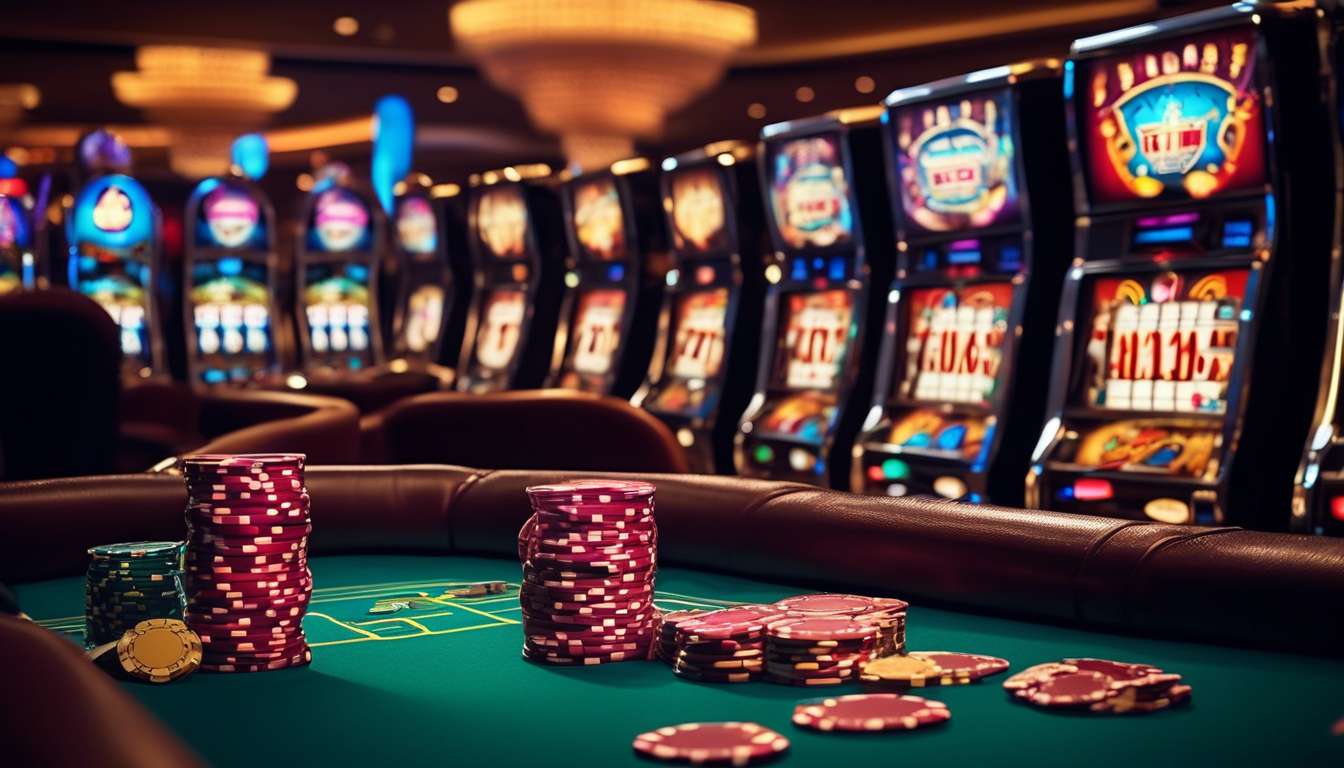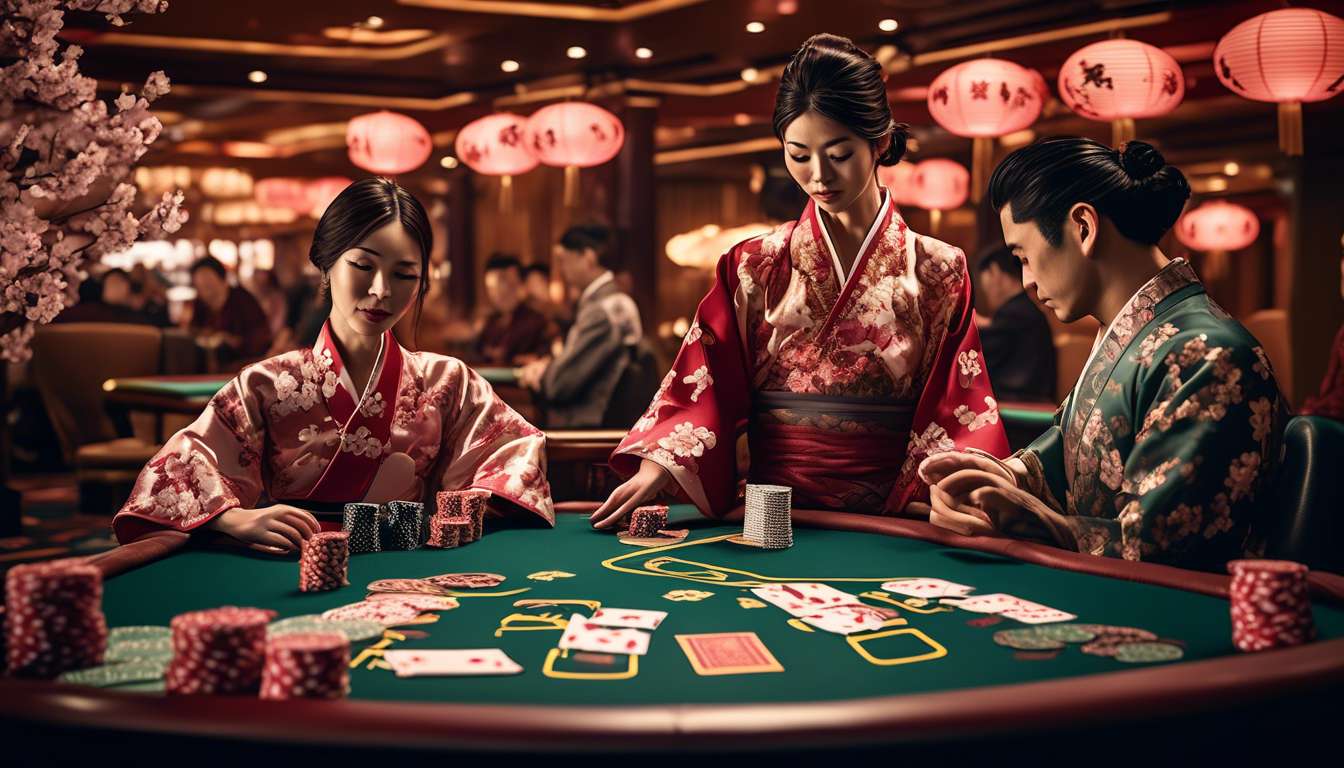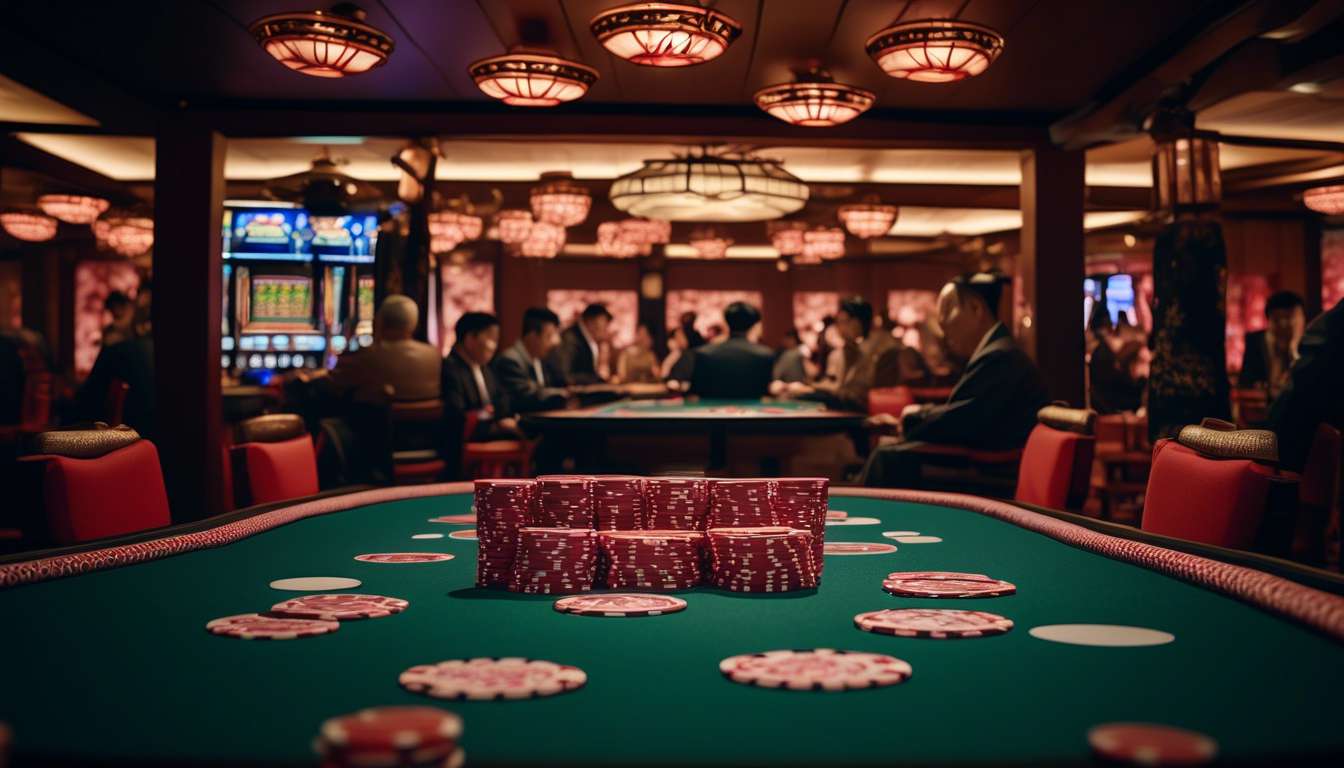As we delve into the intriguing world of casino games and their legal status in Japan, we find ourselves navigating a complex landscape of cultural considerations, historical contexts, and evolving regulations.
Japan’s Approach to Casino Gaming:Japan has garnered global attention with its cautious yet progressive approach to integrating casino gaming into its economy. This development is marked by a blend of tradition and modernity, reflecting Japan’s unique cultural and historical background.
Legally Permissible Games:To understand what is legally permissible within the Japanese gaming industry, we must examine the types of games allowed and the underlying reasons behind these regulations. The legislative framework is designed to balance economic benefits with social responsibility.
Factors Influencing Regulations:
- Cultural Considerations: Deep-rooted beliefs and societal attitudes towards gambling play a significant role.
- Economic Impact: Potential revenue and tourism benefits influence legislative decisions.
- Social Concerns: The government remains cautious of gambling addiction and its social consequences.
Exploring Government Policy:Our journey will take us through the corridors of government policy, where we can observe the formulation and implementation of gambling laws. This involves understanding both the benefits perceived by policymakers and the concerns raised by various stakeholders.
Public and Expert Opinions:
- Advocates: Emphasize economic growth, job creation, and increased tourism.
- Critics: Highlight potential social issues, such as addiction and crime.
Conclusion:Join us as we unravel the complexities of casino games legality in Japan, a topic that continues to evolve and fascinate. This exploration not only provides insight into Japan’s gaming industry but also offers a broader understanding of how cultural and economic factors shape legal frameworks in dynamic societies.
Historical Context and Legal Evolution
Japan’s journey towards legalizing casino games has been long and complex, shaped by various historical and cultural factors. As a society, Japan has historically approached gambling with caution, balancing a cultural affinity for games with concerns about their potential social impact.
The Rise of Pachinko:
Pachinko, a game deeply embedded in Japan’s recreational culture, highlights this tension. It has thrived in a legal gray area, providing entertainment and a sense of community. However, it has also fueled debate about broader gambling legalization.
Shift Towards Integrated Resorts:
In recent years, Japan has seen a shift towards embracing Integrated Resorts. This move signifies a new chapter in the country’s gaming history. These resorts promise to blend:
- Casino gaming
- Hotels
- Entertainment
- Shopping
The aim is to boost tourism and local economies.
Navigating the Transition:
As Japan navigates this transition, many feel a sense of anticipation and belonging in the evolving landscape. There is hope that these changes will respect cultural values while offering new opportunities for growth and connection.
Regulatory Framework Analysis
Japan’s Regulatory Framework for Casino Games
Japan’s regulatory framework for casino games is designed to balance economic growth with social safeguards, ensuring that gaming activities are conducted responsibly. As a community, we recognize the importance of having a well-structured system that addresses our collective concerns while embracing new opportunities.
Legalization of Integrated Resorts
The recent legalization of Integrated Resorts marks a significant step forward, promising:
- Economic benefits
- A boost in tourism
These resorts are more than just casinos; they’re comprehensive complexes that include:
- Hotels
- Shopping malls
- Entertainment venues
This aligns with our vision for a vibrant, inclusive society.
Pachinko and Its Unique Position
Pachinko, a popular pastime in Japan, operates in a unique space. While not classified as a traditional casino game, it falls under specific regulations that:
- Maintain its cultural significance
- Ensure its economic contribution
Maintaining Transparency and Accountability
As we move forward, maintaining transparency and accountability within the regulatory framework will be crucial. By doing so, we ensure that our gaming industry thrives, offering:
- Enjoyment
- Economic prosperity
All while safeguarding our societal values.
Permissible Game Types Overview
In Japan, a diverse range of game types is permitted in casinos, each carefully regulated to ensure they align with cultural values and economic goals.
As we navigate the landscape of legalized gambling, we’re excited to explore options that are both familiar and innovative. Pachinko, a beloved pastime for many, remains a staple. It offers:
- A unique blend of entertainment and skill.
- A shared experience that connects us to a rich tradition.
With the introduction of Integrated Resorts, we’ve embraced a new era of gaming and leisure. These resorts aren’t just about gambling; they’re about creating spaces where we can enjoy:
- World-class entertainment
- Dining
- Relaxation
By integrating these diverse offerings, we foster a sense of community and belonging.
Through our shared enthusiasm for these games, we are contributing to Japan’s economic growth while respecting its cultural heritage. Together, we’re building a vibrant future where everyone can feel included and engaged.
Cultural Influence on Legislation
Cultural Values and Japan’s Gambling Laws
Cultural values significantly shape Japan’s gambling laws, ensuring they align with traditional practices and community standards. This influence is evident in how certain games, like Pachinko, which is deeply ingrained in Japanese culture, navigate the legal landscape.
Pachinko’s Unique Position
Pachinko parlors are prevalent across Japan, serving as more than just gaming venues. They act as social hubs where people connect and unwind. Our cultural familiarity with Pachinko has allowed it to remain a legal exception in our otherwise strict gambling regulations.
Cautious Approach to Legalization
When considering the legalization of new gambling opportunities, Japan approaches the topic with caution to maintain societal harmony.
The introduction of Integrated Resorts is a prime example of this careful balance. These resorts are designed to be more than just casinos and are envisioned as comprehensive entertainment spaces that celebrate Japanese culture while offering a taste of global gaming experiences.
Integration of Cultural Elements
To ensure legislative changes remain respectful of our values, Integrated Resorts:
- Incorporate aspects of Japanese culture.
- Foster a sense of community.
- Provide diverse entertainment options beyond gambling.
By integrating these cultural elements, Japan ensures that any changes to gambling laws uphold traditional values and support community standards.
Economic Impact Assessment
Assessing the Economic Impact of Japan’s Gambling Industry
To thoroughly evaluate the economic impact of Japan’s gambling industry, we need to consider both current revenues and future potential.
Current Landscape:
- Pachinko parlors already play a significant role in Japan’s economy.
Future Potential:
- The legalization of Integrated Resorts promises to provide an even greater financial boost.
Opportunities with Integrated Resorts:
- Job Creation: The development of Integrated Resorts can lead to numerous employment opportunities.
- Tourism Stimulation: These resorts can attract tourists, boosting the hospitality and service sectors.
- Increased Tax Revenues: The government can benefit from additional tax income generated by these resorts.
Community Benefits:
- Embracing these changes can foster a sense of unity and belonging through shared economic growth.
- Learning from Pachinko’s history is crucial to ensure that the legalization process is handled thoughtfully, maximizing the benefits.
Making Informed Decisions:
- Our collective future depends on decisions that balance current successes with the untapped potential of Integrated Resorts.
- By navigating this evolving industry wisely, we can enjoy the rewards of progress while preserving our cultural integrity.
This approach ensures that we are well-positioned to capitalize on the opportunities the gambling industry presents, fostering both economic and community development.
Social Responsibility Measures
As we explore the potential of Japan’s gambling industry, it’s crucial that we prioritize implementing robust social responsibility measures to mitigate any negative impacts. We’ve seen the excitement surrounding the legalization of Integrated Resorts, but we must ensure these developments don’t overshadow community well-being.
By incorporating effective measures, we can foster a safe environment where everyone feels valued and secure.
Pachinko, already deeply embedded in Japanese culture, serves as a reminder of the importance of responsible gambling practices. While its operation continues, we must advocate for enhanced player protection policies to prevent addiction.
With the introduction of Integrated Resorts, establishing clear guidelines and support systems becomes even more critical.
Together, we can build a framework that promotes responsible gaming, emphasizing education and support for those who may be at risk. Our shared goal should be to create an inclusive atmosphere where entertainment thrives without compromising individual or societal health.
Let’s embrace this opportunity to unite for a sustainable future.
Government Policy Insights
The Japanese government has established comprehensive policies to regulate and oversee the burgeoning gambling industry, ensuring that it aligns with national interests and public welfare.
There has been a significant shift with the legalization of certain gambling activities, which includes the introduction of Integrated Resorts. These resorts are designed to boost tourism and the economy by offering more than just gaming. They integrate:
- Hotels
- Shopping
- Entertainment
Pachinko, a beloved pastime for many, remains a unique exception. While not officially classified as gambling, it operates in a gray area. Players can win prizes that can be exchanged for cash outside the premises. This illustrates how deeply ingrained Pachinko is in society and the careful balance the government maintains to uphold cultural norms.
Overall, the policies ensure that any expansion of legal gambling respects traditions while promoting economic growth. By fostering a sense of trust and unity, the government aims to embrace these changes together, enriching communities and preserving shared values.
Opinions and Perspectives Exploration
Many stakeholders express diverse opinions on Japan’s evolving casino laws, reflecting both enthusiasm and concern for their potential impact on society.
As we gather around the topic of legalization, we notice a mix of excitement and worry. Some see the introduction of Integrated Resorts as a chance to boost tourism and invigorate the economy, bringing new opportunities for connection and enjoyment. These resorts promise a vibrant mix of entertainment and cultural experiences that many are eager to explore.
However, not everyone shares this optimism. Concerns about gambling addiction and its social consequences are valid and deserve attention. Pachinko, already a popular pastime, raises questions about gambling’s role in our communities.
Balancing these perspectives is crucial as we move forward. We need to ensure that the allure of new ventures doesn’t overshadow the well-being of our society. As a community, we must strive for a harmonious path that respects both tradition and innovation.
What are the penalties for participating in illegal casino games in Japan?
Participating in illegal casino games in Japan can result in severe penalties.
We must be aware of the consequences of breaking the law in this regard. Engaging in such activities could lead to:
- Fines
- Imprisonment
- Other legal repercussions
It’s crucial to respect the laws and regulations of the country we are in to avoid any negative outcomes.
Let’s stay informed and make responsible choices to avoid any legal issues.
How do Japanese casino regulations compare to those in other Asian countries?
When comparing Japanese casino regulations with those of other Asian countries, we find that Japan’s approach is unique in many ways.
While some countries have strict bans on gambling, Japan has been gradually opening up to the idea of integrated resorts. This shift showcases a more progressive stance that sets Japan apart from its neighbors in terms of casino regulations.
It will be interesting to see how these developments shape the region’s gambling landscape.
Are there any ongoing debates or discussions about changing the current casino laws in Japan?
We are currently witnessing ongoing debates and discussions regarding potential changes to Japan’s existing casino laws. It’s a topic that sparks varied opinions and generates much interest among the public.
As a society, we are actively engaged in these conversations, considering the potential benefits and drawbacks of altering the current regulations.
It’s a dynamic issue that continues to evolve as different perspectives are considered and debated.
Conclusion
In conclusion, understanding the legality of casino games in Japan involves navigating a complex regulatory framework shaped by historical, cultural, and economic factors.
While certain game types are permitted under specific conditions, social responsibility measures and government policies play a crucial role in shaping the landscape of gambling in the country.
Exploring different perspectives on this issue can provide valuable insights into the ongoing discussions surrounding the regulation of casino games in Japan.




